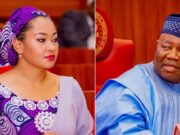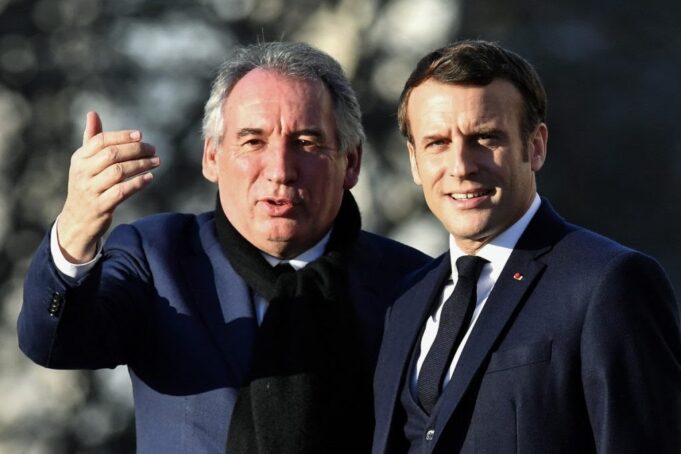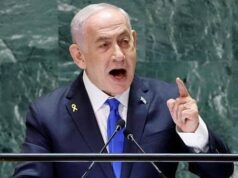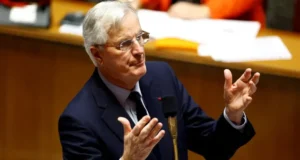President Emmanuel Macron has appointed Francois Bayrou, the 73-year-old leader of the centrist MoDem party, as France’s new prime minister, following the ousting of Michel Barnier’s government in a historic no-confidence vote.
Bayrou, who has been a key ally of Macron, takes on the challenge of leading France through a turbulent political landscape after months of deadlock and a divided parliament.
Bayrou’s appointment comes just nine days after Barnier, who served as prime minister for only three months, was ousted over disagreements surrounding an austerity budget.
Bayrou is now tasked with forming a new government and navigating a no-confidence vote in the National Assembly, where no party or alliance holds a clear majority.
He also faces the critical task of negotiating the 2025 budget to prevent further economic instability.
Macron made the announcement after meeting with Bayrou for nearly two hours on Friday.
Although the talks were described as “tense,” the French presidency confirmed Bayrou’s appointment in a brief statement, without offering additional details.
Bayrou will become Macron’s sixth prime minister and his fourth in 2024.
The new prime minister faces several challenges, including securing enough support in parliament to avoid further instability and addressing the deepening political division that emerged following the summer’s snap parliamentary elections.
The left-wing New Popular Front (NFP), which became the largest bloc in the National Assembly, had called for the appointment of a prime minister from their ranks.
However, Macron’s choice of Bayrou has sparked opposition from both the left, which opposes continuing Macron’s policies, and the right, where he remains unpopular due to his ties with former president Nicolas Sarkozy.
Bayrou’s candidacy was also seen as a contentious move for some of the other prime ministerial hopefuls, including former Socialist prime minister Bernard Cazeneuve, Defence Minister Sebastien Lecornu, and former foreign minister Jean-Yves Le Drian, who declined the position.
While Bayrou’s appointment signals a potential resolution to the political crisis, the public remains skeptical, with recent polls showing widespread frustration.
Over two-thirds of respondents have expressed a desire for politicians to reach a deal to stabilize the government.
In the backdrop of this crisis, the far-right leader Marine Le Pen, who played a role in Barnier’s ouster, remains a powerful figure.
With the 2027 presidential elections approaching, Le Pen’s support continues to grow, posing a significant challenge to Macron’s party.
However, she is currently facing an embezzlement trial in March 2025, which could impact her political future.

















